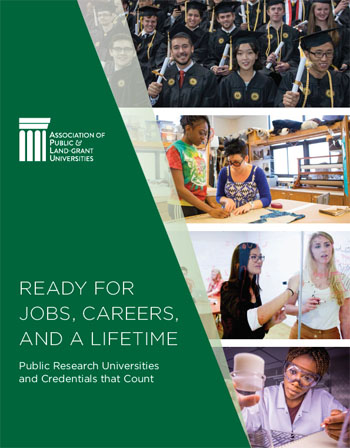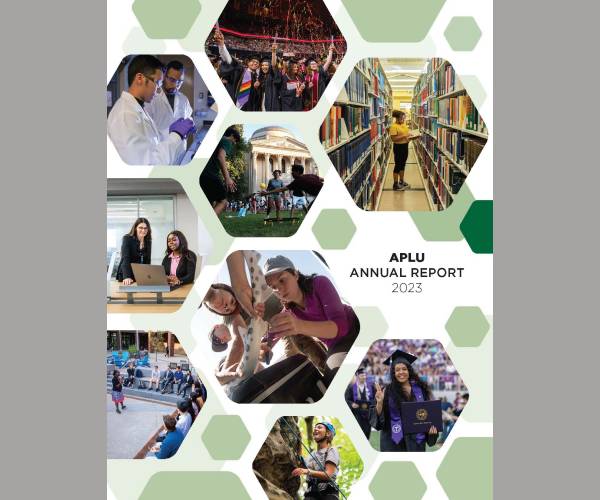Ready for Jobs, Careers, and a Lifetime
A college degree matters more than ever before. In the post-recession economy, job gains have been far better for those with college degrees than for those with only a high school degree.1 Students are clear that a primary purpose for enrolling in college is to get a good job and to put themselves on a path to a successful career. Employers and the public increasingly feel that universities are not doing enough to prepare students for employment. Universities feel a degree must involve a broad education, though certainly many, probably most, in the public university community agree on the need to prepare students for employment.
 Broader education and employment preparation are not mutually exclusive goals, nor have they ever been. Public universities should focus on both goals to best serve students, society, and the economy. To that end, public universities should continue, decisively and with resolve, to evolve and incorporate strategies to increase student employment and career success.
Broader education and employment preparation are not mutually exclusive goals, nor have they ever been. Public universities should focus on both goals to best serve students, society, and the economy. To that end, public universities should continue, decisively and with resolve, to evolve and incorporate strategies to increase student employment and career success.
Researchers estimate that by 2020 the U.S. economy will increase by 55 million new job openings—24 million new jobs and 31 million created by baby boomer retirements. Sixty-five percent of all jobs will require some postsecondary education and training beyond high school. Many millions of those new jobs will require college degrees that include key employment skills. Education for employment upon graduation is important, but a four-year degree should also put graduates in a better position to adapt as employment requirements change throughout their careers.
Have responsibility for talent and workforce development or economic development at an APLU member institution? Join APLU’s Commission on Economic and Community Engagement (CECE).




Stay Connected
X (formerly Twitter)
Facebook
YouTube
LinkedIn
RSS